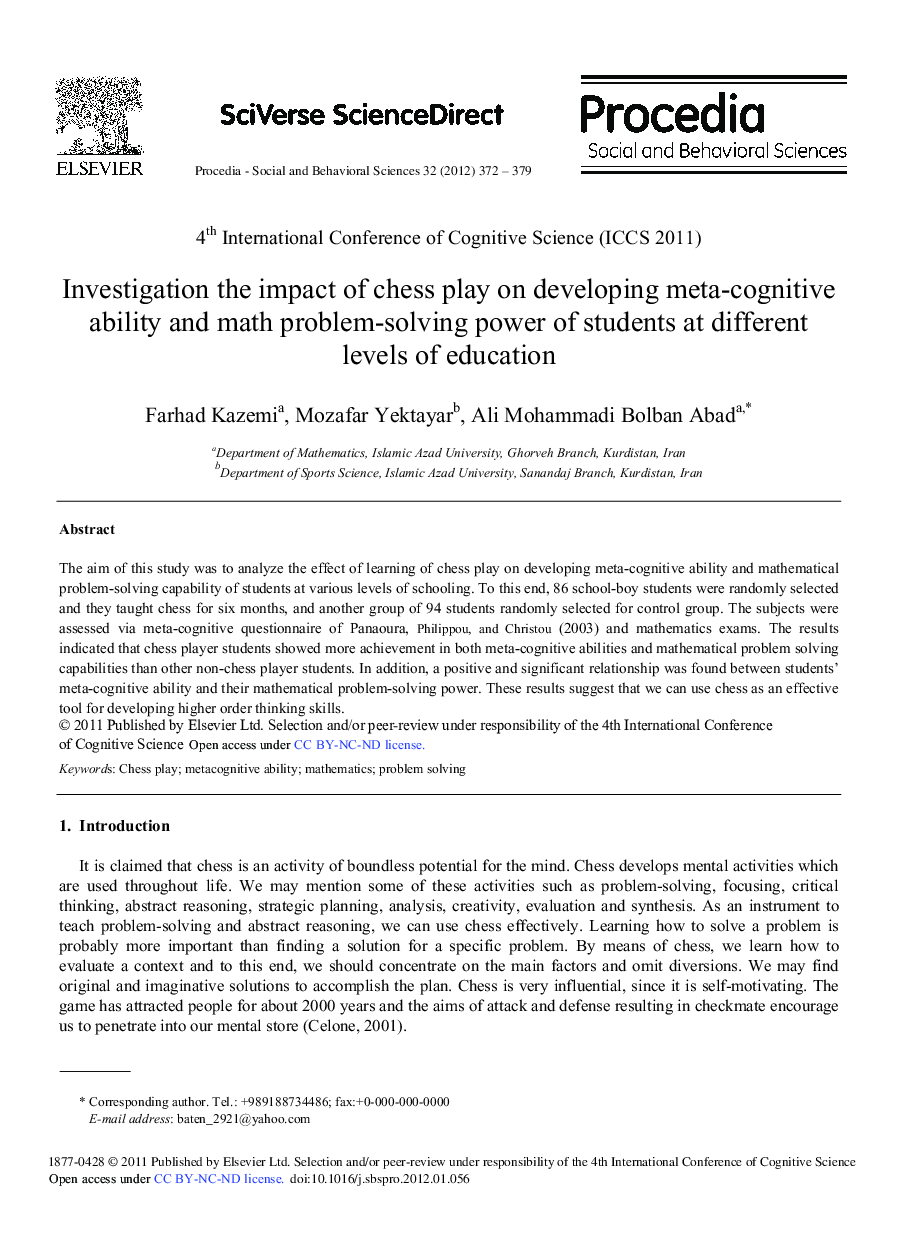| Article ID | Journal | Published Year | Pages | File Type |
|---|---|---|---|---|
| 1123024 | Procedia - Social and Behavioral Sciences | 2012 | 8 Pages |
The aim of this study was to analyze the effect of learning of chess play on developing meta-cognitive ability and mathematical problem-solving capability of students at various levels of schooling. To this end, 86 school-boy students were randomly selected and they taught chess for six months, and another group of 94 students randomly selected for control group. The subjects were assessed via meta-cognitive questionnaire of Panaoura, Philippou, and Christou (2003) and mathematics exams. The results indicated that chess player students showed more achievement in both meta-cognitive abilities and mathematical problem solving capabilities than other non-chess player students. In addition, a positive and significant relationship was found between students’ meta-cognitive ability and their mathematical problem-solving power. These results suggest that we can use chess as an effective tool for developing higher order thinking skills.
